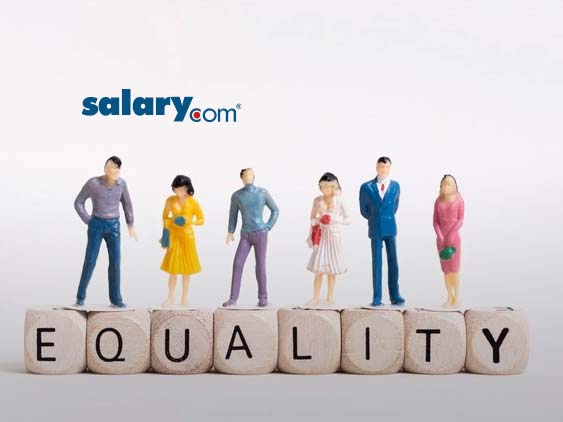Only One-Quarter of Employees Say Their Employer Is Transparent About Pay in New salary.com Pay Equity Pulse Survey
- Almost Half of Employees Do Not Think They Are Paid Fairly
A new pulse survey by Salary.com reveals that employees perceive a pervasive lack of pay transparency and pay equity at their organizations. Only 23 percent of employees said their employer is transparent about how people are paid in their organization and that it is okay to ask questions about their salary. Meanwhile, almost half (46 percent) of employees do not think they are paid fairly compared to people in the same role at other companies and over a third (37 percent) do not think they are paid fairly compared to their internal colleagues. Against the backdrop of a heated war for talent, this perception of unfair pay does not bode well for organizations, particularly as compensation ranked as the top consideration of respondents when evaluating a company for employment.

HR Technology News: NICE CXone Selected by Leading Australian Vocational Education Provider to Digitally Transform Its Customer Service
Lack of Pay Transparency
The survey revealed that not only are there few manager/employee conversations about pay but also a knowledge gap among those managers about how pay works. Half of the employees surveyed have never asked a manager how their pay is determined. Of the 49 percent that have asked, half said their manager could not answer the question to their satisfaction and 17 percent said their manager could not answer it at all.
“There is an abundant lack of pay transparency in Corporate America,” said David Turetsky, Vice President of Consulting at Salary.com. “When we surveyed HR professionals in the fall of 2021, only 35 percent had established a pay philosophy that supports pay transparency, so these employee results are, unfortunately, not surprising. The pressure is on for organizations to pull back the curtain on pay, educating managers on their prevailing pay philosophy and how to communicate it. I expect when we conduct this survey next year, we’ll see movement in that direction.”
Taboos around salary discussions are not limited to an employee/manager relationship. Forty-five percent of employees surveyed do not feel comfortable discussing their salary and only one-quarter have shared salary information with both friends and colleagues.
Factors in determining fair pay
When asked what considerations employers should take into account when determining fair and equitable pay, employees said:
- External equity: 87%
- Pay commensurate with skills: 83%
- Internal equity: 76%
- Demonstrated ability to collaborate, meet goals, solve problems, etc.: 73%
- How I’m treated as a candidate is how I expect to be treated as an employee: 62%
- Candidate education level: 48%
The survey revealed a vote of no confidence in the performance management process, an important component of the pay process. Only 15 percent said the process at their current or former employer is/was effective.
“When assessing pay equity, HR professionals need to incorporate internal data and external market data for comparable work into the equation to solve for internal pay gaps,” said Turetsky. “Once that work is done, they can establish a consistent methodology for performance reviews that will serve to maintain the pay equity balance throughout an employee’s tenure.”
HR Technology News: HUB International Acquires the Assets of Kornerstone, Inc. To Expand Retirement Capabilities in California
Pay equity’s role in corporate culture
Employers looking to win the war for talent cannot ignore organizational culture, which ranks just below compensation in terms of what employees care about when considering an employer. Flexibility in where and when to work, and career advancement opportunities, followed culture in importance.
When asked if they trust their current employer to administer pay in a way that is consistent with the organizational values that are communicated, 43 percent said no, 36 percent said yes, and 21 percent don’t know. Sixty-four percent said it is important to them that their organization’s pay practices support efforts to improve diversity, equity and inclusion (DE&I).
One-third of respondents think their organization’s pay practices do support efforts to improve DE&I, while 29 percent do not and 38 percent “have no idea.”
“Compensation is intrinsically tied to an organization’s culture,” said Turetsky. “If you don’t establish fair and transparent pay practices that support DE&I, and clearly communicate those practices, you’ll have a hard time convincing employees your DE&I efforts are more than just window dressing. And, ultimately, you’ll face an uphill battle in earning the trust of your employees.”
HR Technology News: LogMeIn Rebrands as GoTo With a New Application Combining Support and Communications Solutions, New Products, and a New Partner Network
[To share your insights with us, please write to sghosh@martechseries.com]

